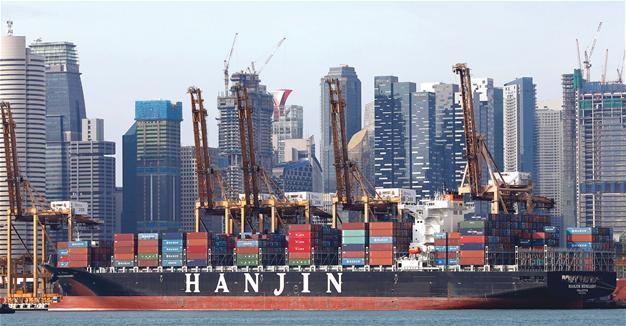Asian giant’s chief apologizes for shipping chaos
SEOUL-Agence France-Presse

REU Photo
The chairman of South Korea’s Hanjin Group on Oct. 4 apologized for the “cargo chaos” caused by the collapse of its shipping unit, but insisted the company could, and should, be salvaged.
Hanjin Shipping, the world’s seventh largest shipping company, is seeking bankruptcy protection at home and in the U.S. after creditors rejected its latest plan to deal with a $5.37 billion debt.
Its bankruptcy would be by far the largest in the history of container shipping, which is suffering its worst downturn in six decades because of slumping global trade and a slowdown in China.
“I apologize to the public for causing concern over the cargo chaos,” Cho Yang-Ho, chairman and CEO of Hanjin Group, was quoted by Yonhap news agency as saying.
“But I want to say that we have done everything we can do to save the shipper,” Cho told a parliamentary hearing.
He added that Hanjin Group had injected around two trillion won (US$1.8 billion) into the shipping firm since its acquisition in 2014.
Hanjin Group, which also owns Korean Air, is providing 100 billion won in emergency funds to the troubled shipping unit, which includes a personal donation of 40 billion won from Cho.
“We hit a wall as a private company competing against foreign shippers that receive billions of dollars from their governments,” Cho said.
He argued that a quick revival of Hanjin’s fortunes would be key to fending off foreign competition.
“Its collapsed business network can be preserved if Hanjin Shipping is salvaged in the near future,” Cho told lawmakers.
Under the Seoul court receivership, the company must submit a business revival plan by November 25 before the court decides whether to put it under a recovery program or declare it bankrupt.
Hanjin has been hit hard by the slump in global trade, especially over the past three years.
It posted a net loss of more than 473 billion won in the first half of this year alone, after racking up total net losses of about 1.2 trillion won over the past three years.
